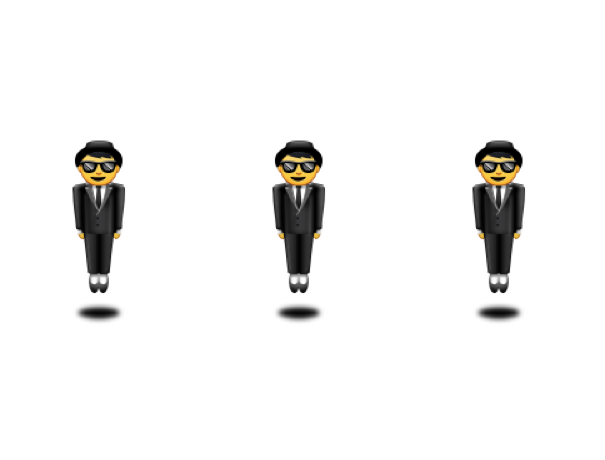As concern over the very real dangers posed by screen addiction grows,eroticism! schoolgirl trapped in an elevator gets raped harshly tech companies are slowly beginning to do what was once unthinkable: create features that are meant to actively discourage people from using their services.
Google became the latest tech giant to undertake such an effort this week, when it announced its upcoming Android P update will launch with a slew of features specifically designed to combat the most addictive qualities of our devices.
SEE ALSO: Google’s latest assault on Apple proves how far behind Siri really isSoon our phones will be able to politely remind us when we've spent too much time binge watching, automatically switch on "Do Not Disturb" is some situations, and help us focus on "meaningful engagement" (whatever that means).
But, put into context with the rest of Google's product announcements, I wonder if we're at risk of simply swapping one addiction for another.
Because at the same time as Google is preaching the benefits of limited screen time and "meaningful" experiences, it's becoming increasingly clear that Google's vision of the future is one where AI can automate as much of our existence as possible.
And that could be far more addictive than any single app on your phone.
That's because, slowly but surely, Google is ensuring we no longer have to think about the most mundane details of our day-to-day lives, because AI will do that thinking for us. Need to edit a photo? Google Photos will automatically suggest the right edit. Annoyed about looking up directions or hate sending rote emails? Gmail has you covered. What about phone calls? Surprise, Google Assistant just casually learned to speak like humans while you weren't looking. Driving? Alphabet-owned Waymo has a car you might've heard of.
And we're still in the very early days of this new "AI first" world, too. Any Google product manager will tell you that what we've seen this week is only the beginning of what might be possible.
To be clear, none of these things are inherently bad. Most of them are actually a pretty clear upside. If Google can help automate the most boring things we do every day, then that's more time we have to spend on other things.
But with that added convenience comes the fact that we're likely to become even more dependent on Google that we already are. Think you're addicted to technology now? Imagine how you'll feel when it's literally capable of becoming a kind of personal assistant.
And, sure, maybe we'll end up less addicted to screens in the process. But we won't be any less addicted to Google.
Topics Artificial Intelligence Google Google Assistant
(Editor: {typename type="name"/})
 Finding calm with TikTok's singing bowl meditations
Finding calm with TikTok's singing bowl meditations
 How to Say No in Turkish: Navigating a New Language
How to Say No in Turkish: Navigating a New Language
 The District of Columbia is suing Grubhub for hidden fees, misleading advertising, and more
The District of Columbia is suing Grubhub for hidden fees, misleading advertising, and more
 No Time for a Negative Peace
No Time for a Negative Peace
Music is the secret weapon of Mario Speedrunners
The Lumpy, Crowded Graveyard: On Necrotopology and Memory
 Can These Dry Bones Live?By Thomas W. LaqueurNovember 2, 2015On HistoryIn the second of three excerp
...[Details]
Can These Dry Bones Live?By Thomas W. LaqueurNovember 2, 2015On HistoryIn the second of three excerp
...[Details]
Floating Capital: A Tour of Levitating Businessmen in Literature
 Floating CapitalBy Dan PiepenbringOctober 21, 2015Department of TomfooleryFear him.The eeriest and m
...[Details]
Floating CapitalBy Dan PiepenbringOctober 21, 2015Department of TomfooleryFear him.The eeriest and m
...[Details]
Pixel 8 Pro vs. iPhone 15 Pro: Comparing specs, price, cameras
 Google has officially unveiledits latest update to its Pixel line of phones, the Pixel 8. This annou
...[Details]
Google has officially unveiledits latest update to its Pixel line of phones, the Pixel 8. This annou
...[Details]
Google will repair Hurricane Harvey victims' Pixel phones for free in Houston
 While repairing a broken or damaged cell phone isn't always the most high-priority thing in the wake
...[Details]
While repairing a broken or damaged cell phone isn't always the most high-priority thing in the wake
...[Details]
New PS5 owners: Get a free game before Oct. 20
 UPDATE: Oct. 4, 2023, 3:07 p.m. EDT Kotakureports that the free game deal for new PlayStation 5 owne
...[Details]
UPDATE: Oct. 4, 2023, 3:07 p.m. EDT Kotakureports that the free game deal for new PlayStation 5 owne
...[Details]
The best nap dresses inspired by 'Bridgerton'
 Dearest reader, Bridgerton is back. And that means it's time for another Regency era-inspired wardro
...[Details]
Dearest reader, Bridgerton is back. And that means it's time for another Regency era-inspired wardro
...[Details]
The Lumpy, Crowded Graveyard: On Necrotopology and Memory
 Can These Dry Bones Live?By Thomas W. LaqueurNovember 2, 2015On HistoryIn the second of three excerp
...[Details]
Can These Dry Bones Live?By Thomas W. LaqueurNovember 2, 2015On HistoryIn the second of three excerp
...[Details]
Amazon Book Sale: Shop early deals now
 Best early Amazon Book Sale deals: Best Kindle deal
...[Details]
Best early Amazon Book Sale deals: Best Kindle deal
...[Details]
Robert “Romeo” Coates, History’s Best Worst
 The Gay LotharioBy Sadie SteinOctober 28, 2015Our Daily CorrespondentA caricature of Coates as Lotha
...[Details]
The Gay LotharioBy Sadie SteinOctober 28, 2015Our Daily CorrespondentA caricature of Coates as Lotha
...[Details]
Why are TikTok comments suddenly full of religious messages?

Pixel 8 Pro vs. iPhone 15 Pro: Comparing specs, price, cameras

接受PR>=1、BR>=1,流量相当,内容相关类链接。